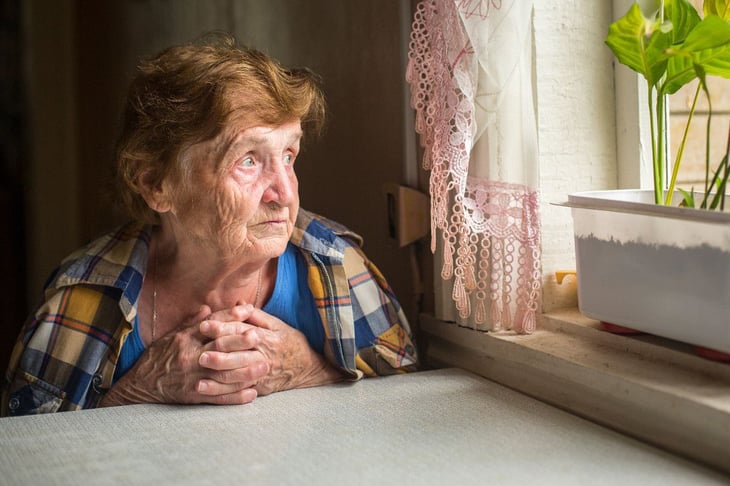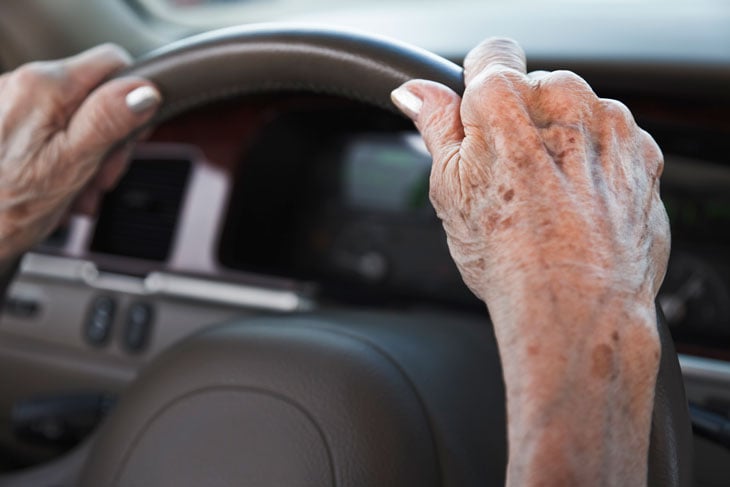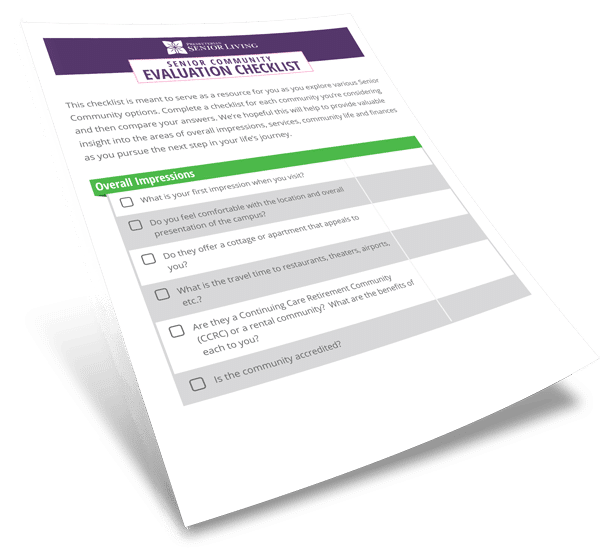
How to Tell When Your Loved One Needs Care Beyond Your Means
Updated from the original publication on July 16, 2020.
Being a caregiver for an aging loved one can be challenging. As he or she continues to need more care, you may start scolding yourself for not spending enough time with your loved one, or for not having the energy or patience needed to give your loved one the kind of one-on-one care they require. When you are feeling exceptionally stressed, tired and worn out, you might even think your loved one is deliberately making it harder for you to care for them properly by being demanding, irritable or unreasonable.
While it is normal for caregivers to suffer a wide range of negative emotions, it isn't normal to feel this way all the time. When powerful emotions like anger, resentment and bitterness affect the quality of care you provide for an aging loved one, you may be suffering caregiver burnout. In fact, it may be time to seek help and guidance from a third party who can provide the highest level of care available for your loved one.
Recognizing the Need for Supplementary Care Beyond What You Can Provide
These signs fall into many categories, including physical, mental, and emotional well-being, as well as recognizing caregiver stress that can reduce the quality of care.
Hearing Loss
Most seniors experience presbycusis, or age-related hearing loss, in varying degrees. As we age, inner ear nerve cells begin to break down naturally, preventing the normal detection and interpretation of sounds. Medical problems such as diabetes, hypertension or cardiovascular conditions can also impair functioning of the eardrum and contribute to hearing loss.
Social withdrawal, loneliness and depression are symptomatic of seniors with hearing loss, especially those who wish to live alone in their own home. They may be embarrassed by having to ask people to repeat themselves or by not being able to engage in conversation with others. Consequently, they choose to withdraw from family and friends. Seniors with significant hearing loss often require the care and attention provided by senior living retirement communities offering assisted living and special care programs.
Alzheimer's and Dementia
Although the causes of Alzheimer's disease and dementia differ significantly, both present similar symptoms physically and mentally. One of the most telltale signs that your loved one may be experiencing dementia or Alzheimer's is short term memory loss. At the onset of either disease, your loved one may begin to lose track of what they are doing, misplace personal items or seem to forget details such as people’s names, their address, etc. This forgetfulness will come and go in the beginning but may quickly advance to the point where they have difficulty recalling and utilizing simple mental skills that they have used all their lives.
Other signs of dementia or Alzheimer's include:
- Dressing inappropriately for the weather
- Forgetting to take medications or taking double doses because they forget they already took their medication
- Forgetting to pay bills (they may have progressive difficulty remembering how to write checks)
- Getting lost or confused in familiar places
- Mood swings (not attributable to bipolar disorder)
- Rambling or incoherent speech
- Hand tremors
- Neglecting personal hygiene
- Losing weight (they may be forgetting to eat)
Even if you see that food is coming and going from cupboards and the refrigerator, seniors with the onset of dementia or Alzheimer's may be throwing food in the trash or even hiding food. Confronting them about eating and throwing away uneaten food typically provokes a confused or irritated response that won't help you in solving the problem.
Depression in Seniors

Depression can affect seniors living alone or with a spouse or significant other. Even seniors who are in relatively good health may suffer symptoms of depression simply because life isn't what they expected it to be. Signs that your loved one may be clinically depressed include:
- They are not interest in doing anything, even activities they used to enjoy
- They talk about feeling sad for no reason or say life seems meaningless to them
- They show a marked decrease or increase in appetite
- They sleep too little or too much
- They claim to feel tired all the time and complain of headaches, body aches and other physical problems when their doctor has given them a clean bill of health
- They struggle to make simple decisions, preferring you or someone else make all their decisions (this may also be a sign of early Alzheimer's)
Depression, dementia and Alzheimer's disease is often accompanied by periods of aggressive behavior, sometimes instigated by confrontation, sometimes not. As a caregiver, you may have already been the target of your loved one's inexplicable angry outbursts and wondered why they would act that way or say hurtful things. Keep in mind that if depression, Alzheimer's Disease, or dementia is affecting your loved one, their brain is not receiving enough oxygen and blood to function normally. In fact, your loved one probably won't remember acting aggressively or saying things they normally wouldn't say.
Seniors and Driving
In Pennsylvania, the number of crashes involving drivers 65 years of age and older represented 17.7% of all crashes in 2022.. Older adults are more likely to be suffering from a side effects from prescription drugs, have slower reaction times, and not fully understand the features available to them. While some seniors can continue driving well into their 70s and 80s, signs that a senior should consider relinquishing their driver's license include:
- Having more than one minor accident in less than three months
- Driving in familiar territory but getting confused about their location
- Driving recklessly, failing to stop at red lights, driving too close, etc.
- Forgetting to fill the tank and running out of gas
- Being diagnosed with dementia, Alzheimer's or other medical condition that would make it dangerous for them to drive
Taking away a senior's ability to drive is one of the more difficult decisions caregivers must do in the best interest of their loved one. Sometimes, they'll recognize that it is time to stop driving and willingly stop. Others may resist the idea and become angry, claiming there is nothing wrong with their driving skills, which contributes to the overwhelming burden of being a caregiver.
Balance & Coordination
Nearly one-third of seniors over 60 suffer at least one or two falls in their lifetime that result in fractures, head trauma or severe bruising. Seniors are particularly susceptible to slipping and falling in winter, whether due to ice or snow-covered sidewalks, feeling unbalanced because of wearing heavy clothing or taking more medications in the winter.
If your aging loved one lives alone, winter can be an especially stressful time. You have to make sure they always have salt to throw on their porches and sidewalks, worry about whether they use those railings you installed on both sides of their porch steps and find someone you can depend on to shovel when it snows. Additionally, if you notice your loved one having increasing difficulty with balance and coordination throughout the year, they may be suffering an undiagnosed medical condition associated with vision loss, hearing loss or cognition.
Recognizing Symptoms of Caregiver Burnout
If you are a caregiver and suffer chronic headaches, lower back pain, elevated blood pressure, sleep disturbances, crying spells, depression, moodiness and worrying incessantly about minor things, you're probably at a breaking point in your caregiving situation. Feeling guilty for feeling resentful towards caring for a loved one is a common cause of emotional stress in caregivers.
However, you should never feel like you are the only caregiver with these feelings because all caregivers at some point experience emotional paradoxes regarding an aging loved one. In addition, you should never feel guilty for wanting "me" time and not be afraid to ask for help. You have every right to act as a "caregiver" for yourself and give your body and mind the palliative downtime they deserve.
How to Find Care for an Aging Loved One
Depending on the health of your loved one, there will most likely come a time when you are unable to provide the kind of high-quality care your loved one needs and deserves without sacrificing yourself and your life. At this point, it’s best to start searching for services that might solve that need, while giving you the time you need to interact with your loved one in a positive way.
Presbyterian Senior Living offers personal care and assisted living services in senior housing communities that will give your loved one the physical, mental, and emotional support they need at individually customized levels. Our communities offer 24-hour skilled nursing and rehabilitation centers offering rehabilitation services, respite services, recuperative care, hospice/end-of-life care and memory support. Our primary goal is helping our residents enjoy the highest quality of life possible by ensuring they thrive in warm, caring and therapeutic environment.
For more information on managing caregiver stress, download our free eBook!
 Disclaimer: This website does not provide medical advice. The information, including but not limited to, text, graphics, images and other material contained on this website are for informational purposes only. If you have a medical emergency, call 911 or your physician.
Disclaimer: This website does not provide medical advice. The information, including but not limited to, text, graphics, images and other material contained on this website are for informational purposes only. If you have a medical emergency, call 911 or your physician.
About Presbyterian Senior Living
As the trusted leader in aging services, Presbyterian Senior Living combines over 95 years of experience with innovative approaches to senior communities and services. Across our 27 communities in PA, MD, OH, and DE, we serve over 6,500 seniors. We are committed to: FOSTERING teamwork and responsibility. UPHOLDING integrity in every action. EMBRACING innovation to create opportunities for everyone’s success. LEADING with compassion and respect.


